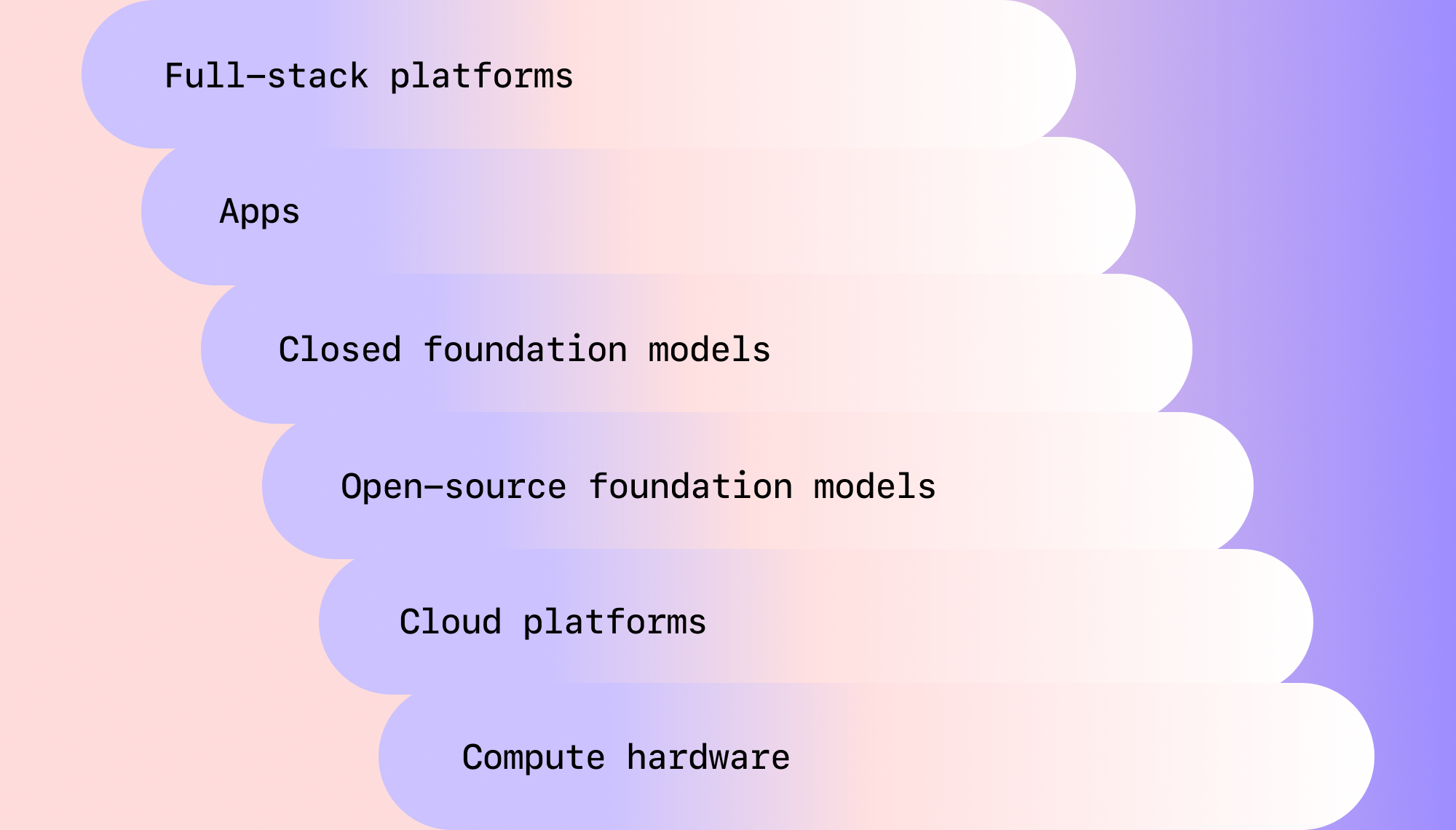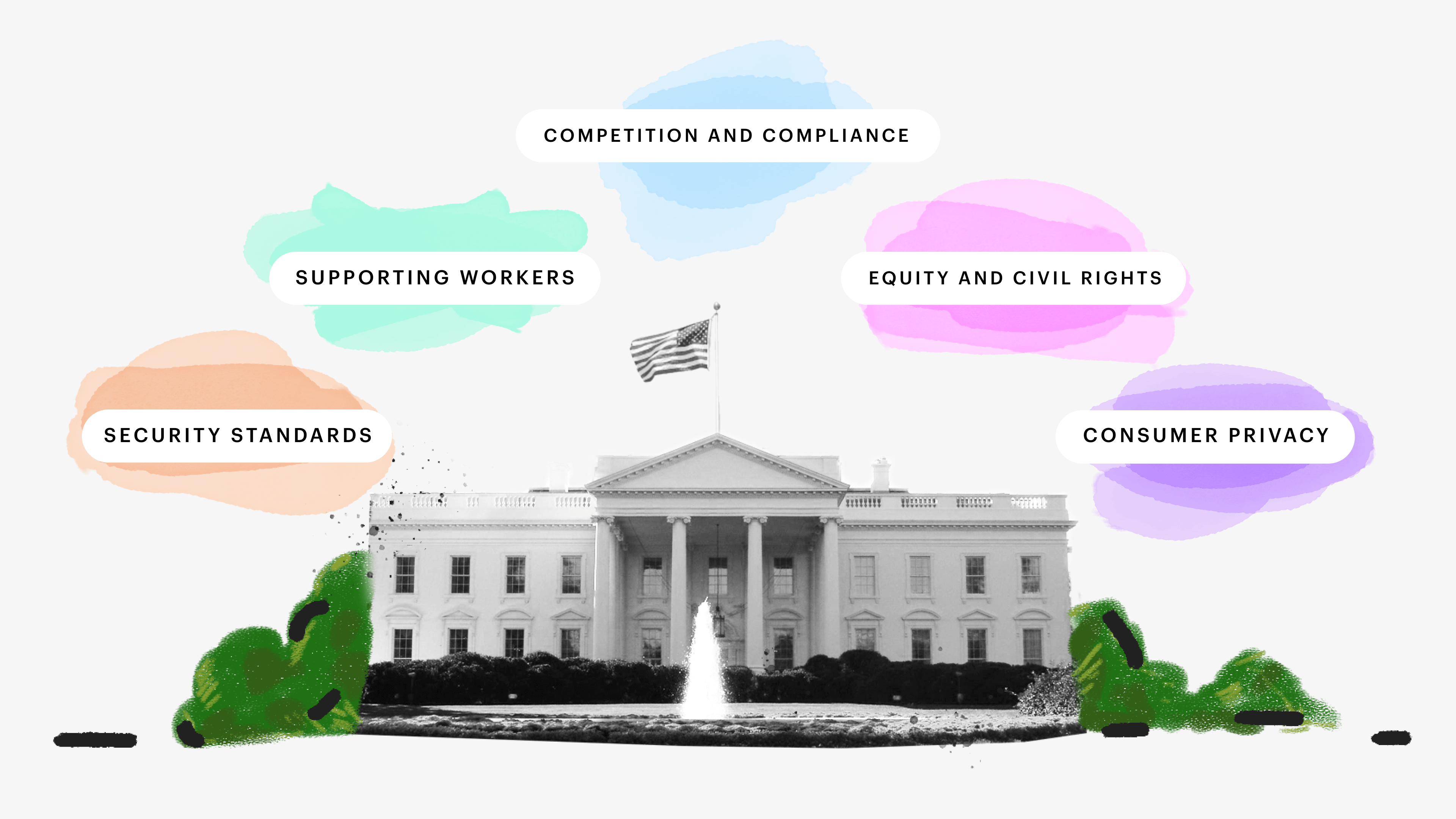AI in the enterprise
– 8 min read
Generative AI in the enterprise 2024 survey
Adoption, challenges, and future outlook

There’s no question about it: for enterprise leaders, generative AI has evolved from a sci-fi novelty to a serious business technology. In 2023, many companies dipped their toes into the generative AI sandbox, but in 2024, generative AI is becoming a dominant force with the potential to transform businesses across industries. To gain a deeper understanding of its adoption and impact, we conducted an extensive survey of enterprise leaders in collaboration with Dimensional Research. This survey aimed to explore the current state of generative AI in enterprise companies and provide valuable insights for organizations considering its implementation.
Our survey engaged over 500 executives and AI professionals from diverse sectors, representing a global perspective on the adoption and use of generative AI. By gathering firsthand experiences and opinions, we sought to uncover the challenges, benefits, and future prospects associated with this technology.
In this blog post, we’ll share the key findings from our survey, shedding light on the widespread recognition and trust in generative AI as a key enabler for businesses. We’ll delve into the specific teams leading the charge in adopting generative AI, as well as the potential for expansion into new departments. Additionally, we’ll address the crucial aspects of security, data management, and points of view on building in-house generative AI solutions.
Understanding the results of our survey can help large companies make smart choices about using generative AI. Let’s explore the exciting possibilities of generative AI and how it can help businesses innovate, transform work, and make customers happier in a digital world that’s always changing.
- 96% of organizations expect AI to be a key enabler for their company, showcasing widespread recognition and trust in the capabilities of generative AI.
- IT, customer support, and security teams are leading the charge in adopting generative AI, using it to streamline processes, improve customer experience, and enhance security.
- 97% of companies anticipate new teams, such as training, customer support, and HR, to adopt generative AI in the near future, recognizing its benefits in day-to-day operations.
- 78% of businesses surveyed are either already using or planning to use private generative AI solutions, driven by concerns over security, data protection, and the need for robust controls.
- In-house generative AI solutions often fall short of expectations, with 61% of companies experiencing accuracy issues and only 17% rating their in-house solutions as excellent in overall performance.
Enterprise use: Adoption of generative AI is swift and widespread across numerous teams
The adoption of generative AI technology by enterprises has been nothing short of remarkable. In fact, a staggering 96% of organizations expect AI to be a key enabler for their company. This statistic alone showcases the widespread recognition of and trust in the capabilities of generative AI.
This new technology isn’t just a fad. Our survey found that 82% of companies think the use of generative AI will rapidly increase in their organizations. This shows that generative AI is a good way to solve complex business problems effectively and efficiently.
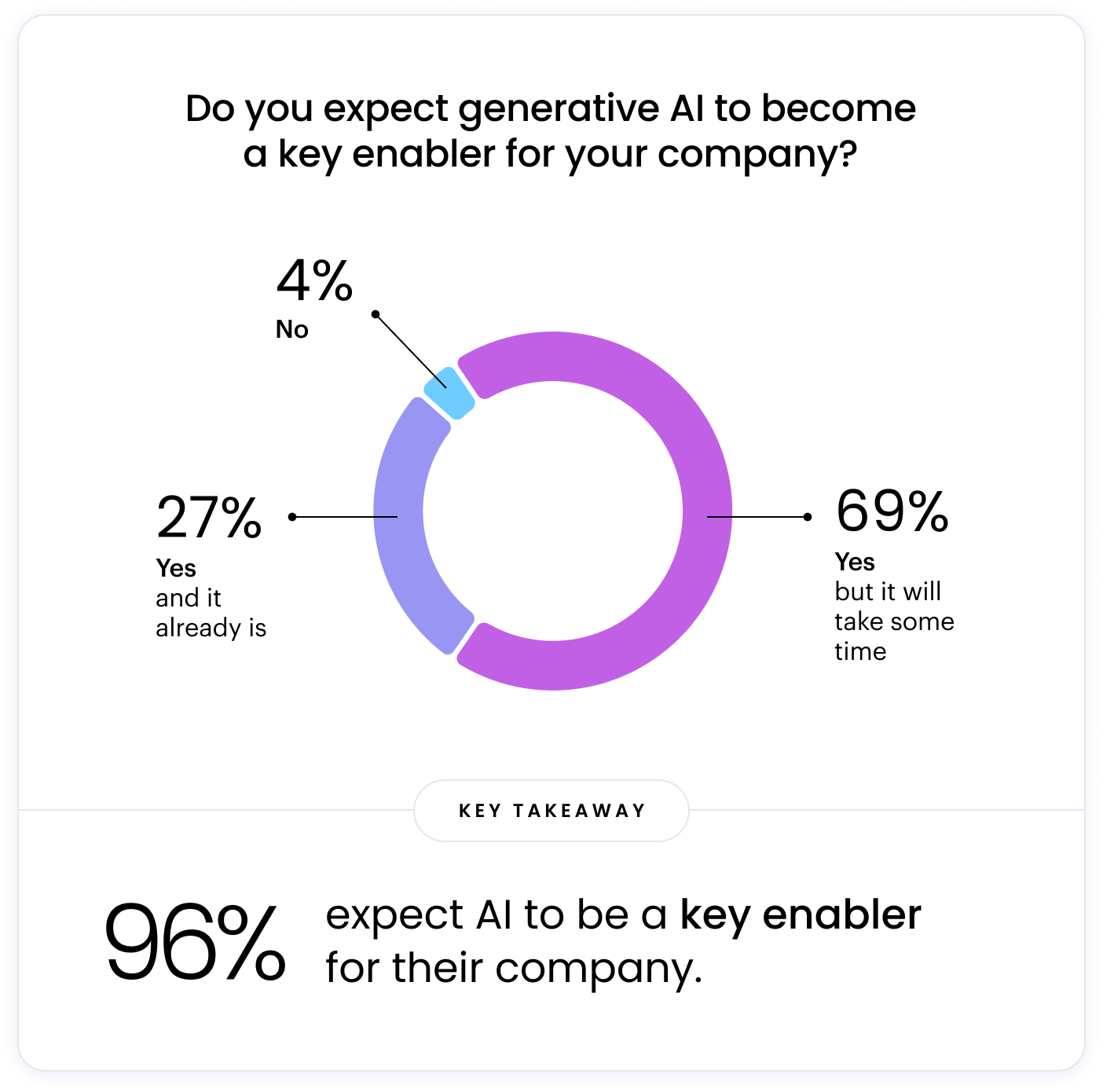
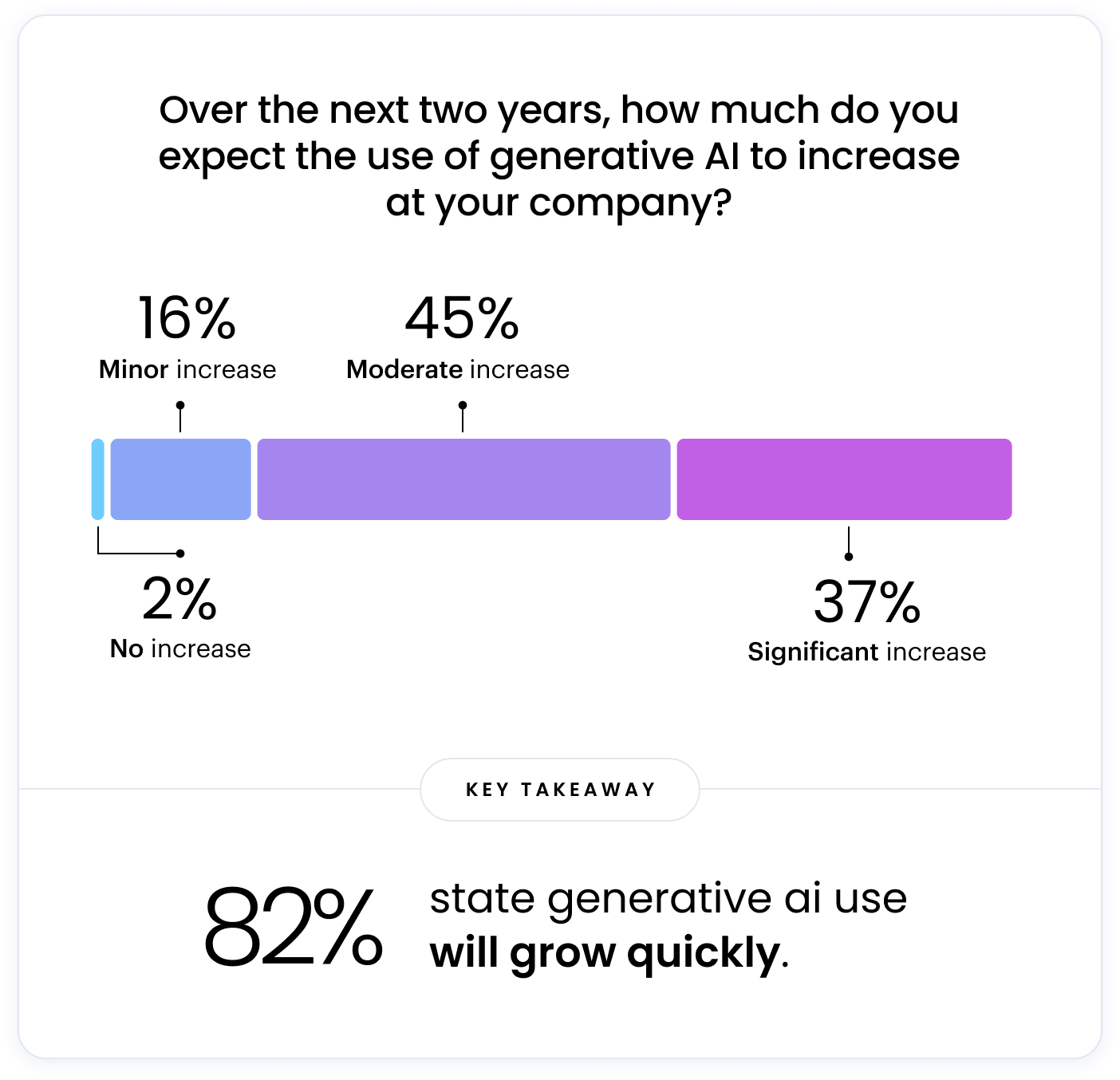
When it comes to which teams are leading the charge in adopting generative AI, it’s no surprise that IT, customer support, and security teams hold the most potential. These teams are constantly looking for ways to streamline processes, improve customer experience, and enhance security — all of which can be achieved through the implementation of generative AI.
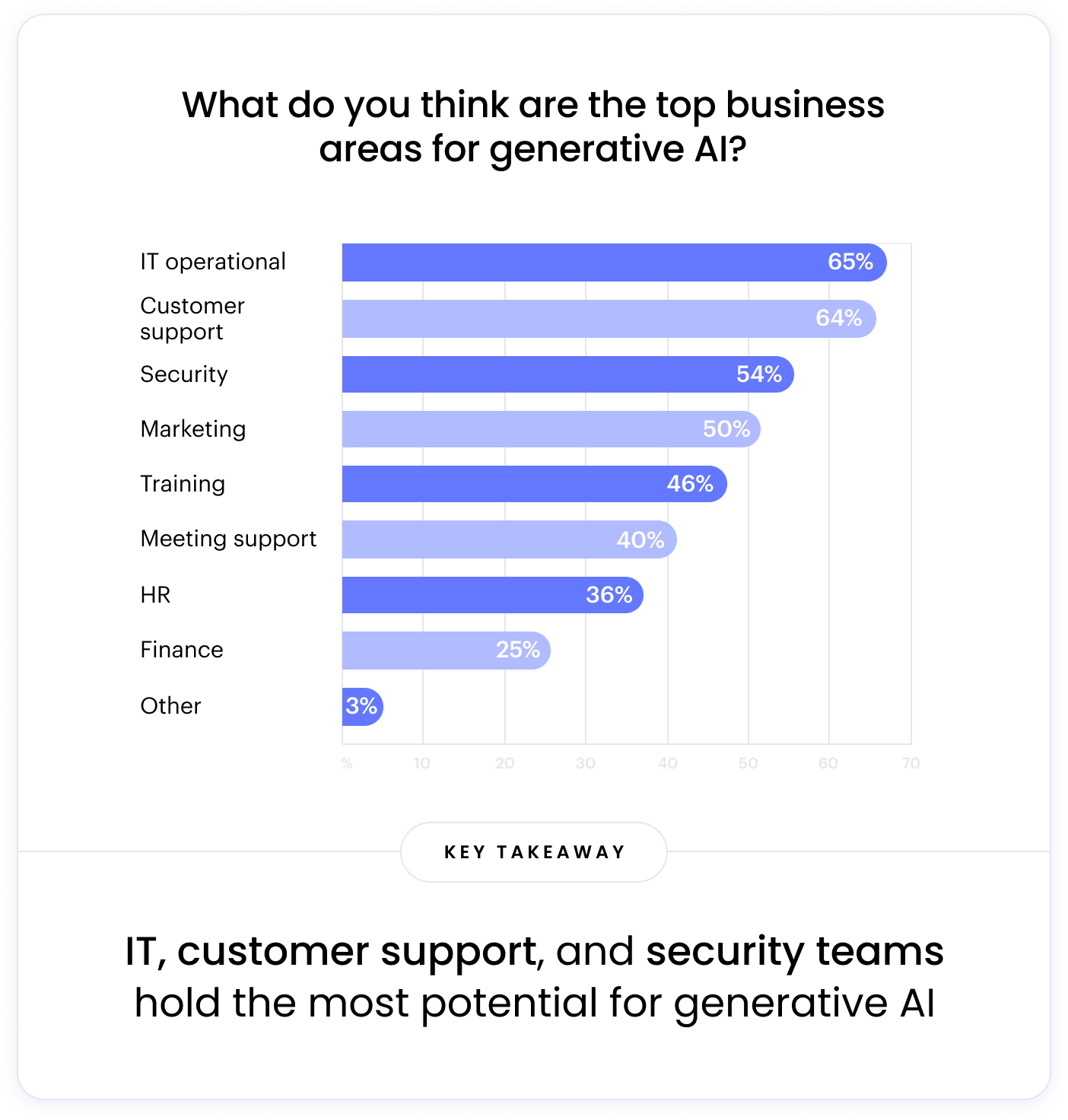
But it’s not just these traditional departments that are embracing generative AI. In fact, a whopping 97% of companies state that new teams will be using generative AI in the near future. Companies expect the most new usage of generative AI to come from departments such as training, customer support, and HR.
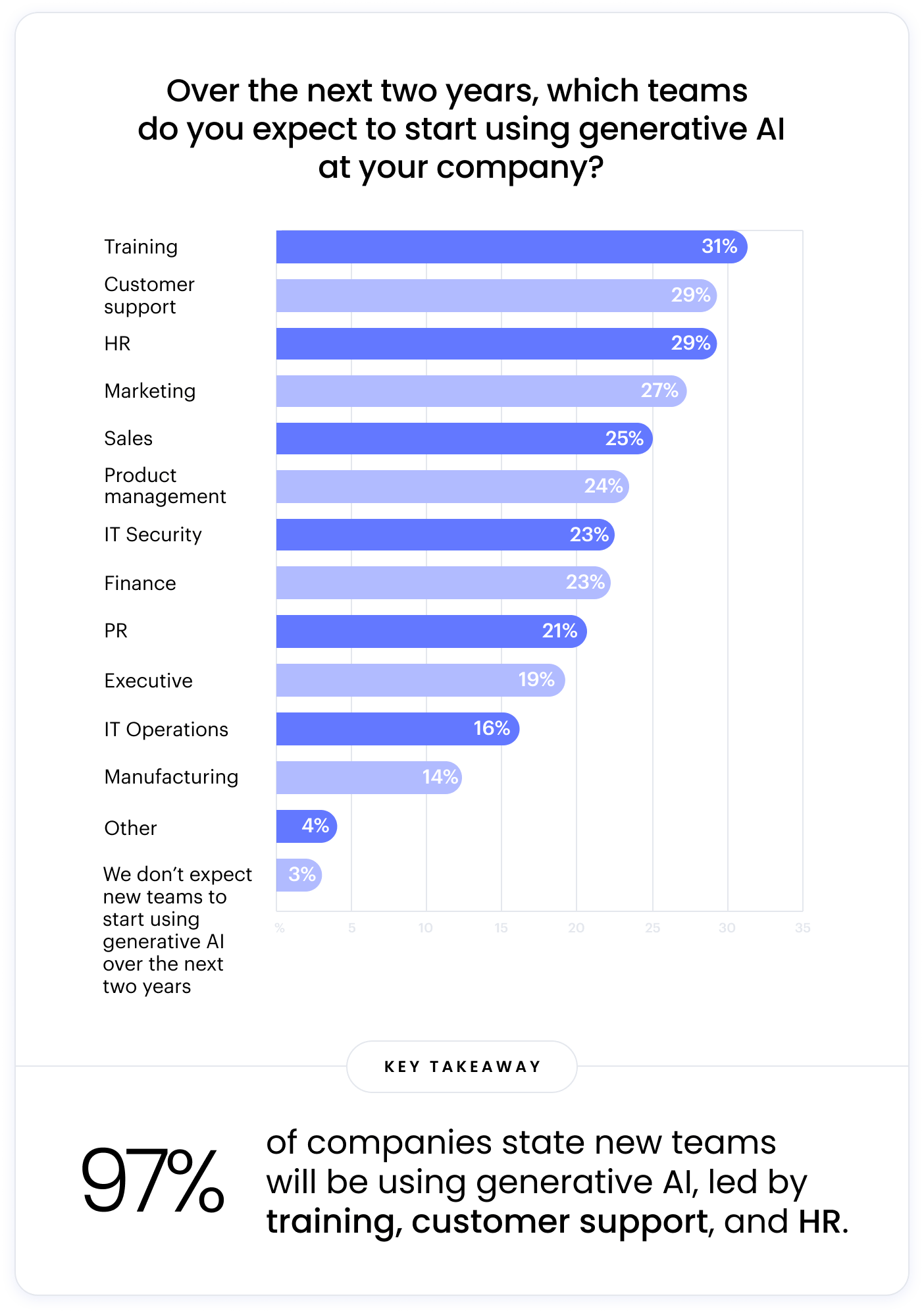
Generative AI is now used by many teams in many companies. The technology has been widely accepted. Generative AI is here to stay, and it’ll help businesses grow and innovate in the future.
Security: Generative AI requires robust controls for security and data management, driving companies to build their own solutions
Companies are using generative AI for various purposes, from generating personalized product recommendations and executive briefings to creating help center content. However, as with any emerging technology, there are concerns about security and data management.
Our survey found that 95% of companies using AI for business applications think more security measures are needed to protect their data. Companies know that using AI can be risky, and they’re trying to make it safer.
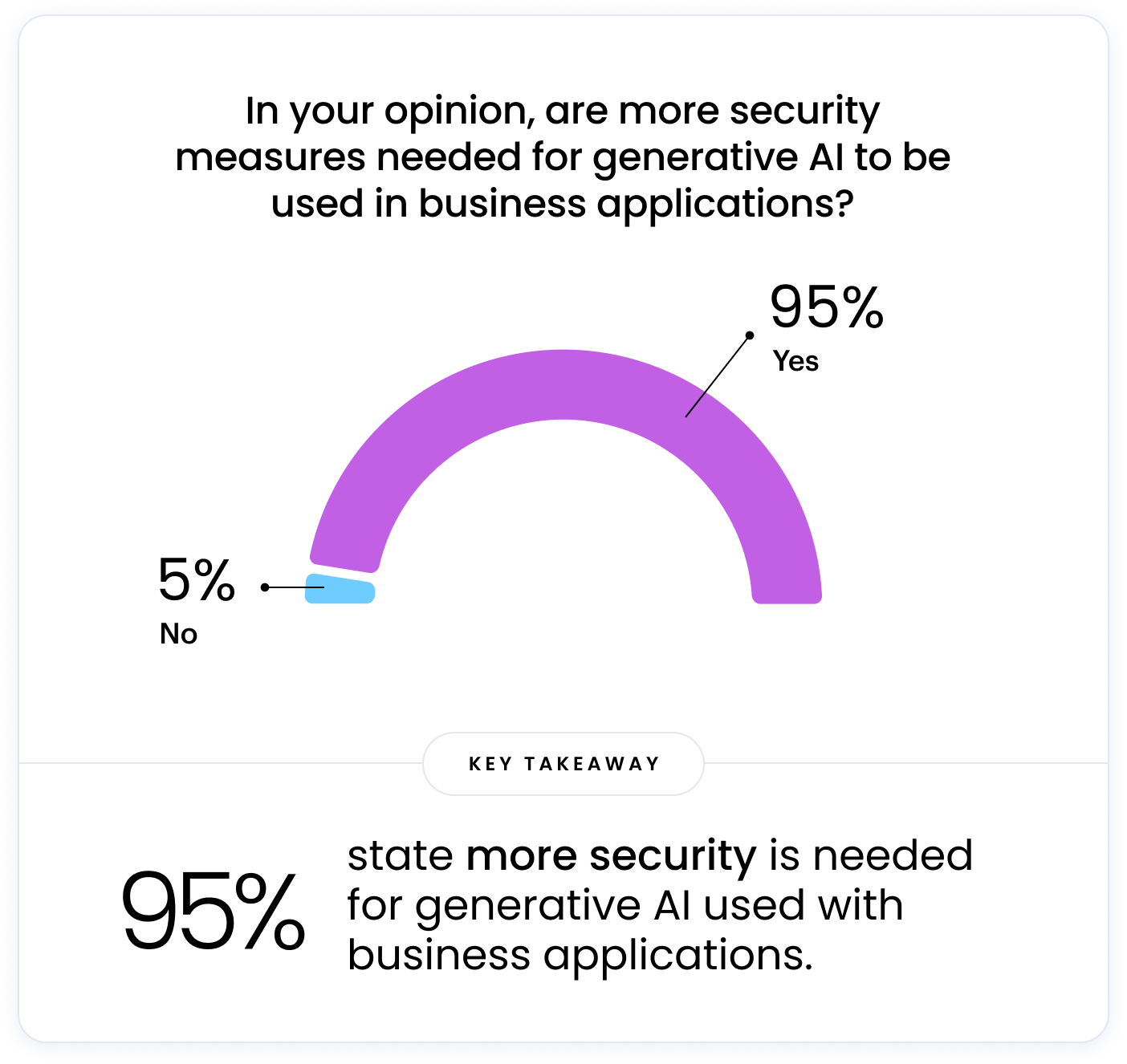
In addition to security, data protection is also a major concern for businesses using generative AI. 94% of companies confirm that data protection is a significant issue when it comes to this technology. With generative AI, large amounts of data are being generated and used, making it crucial for companies to have robust data management protocols in place to protect sensitive information.
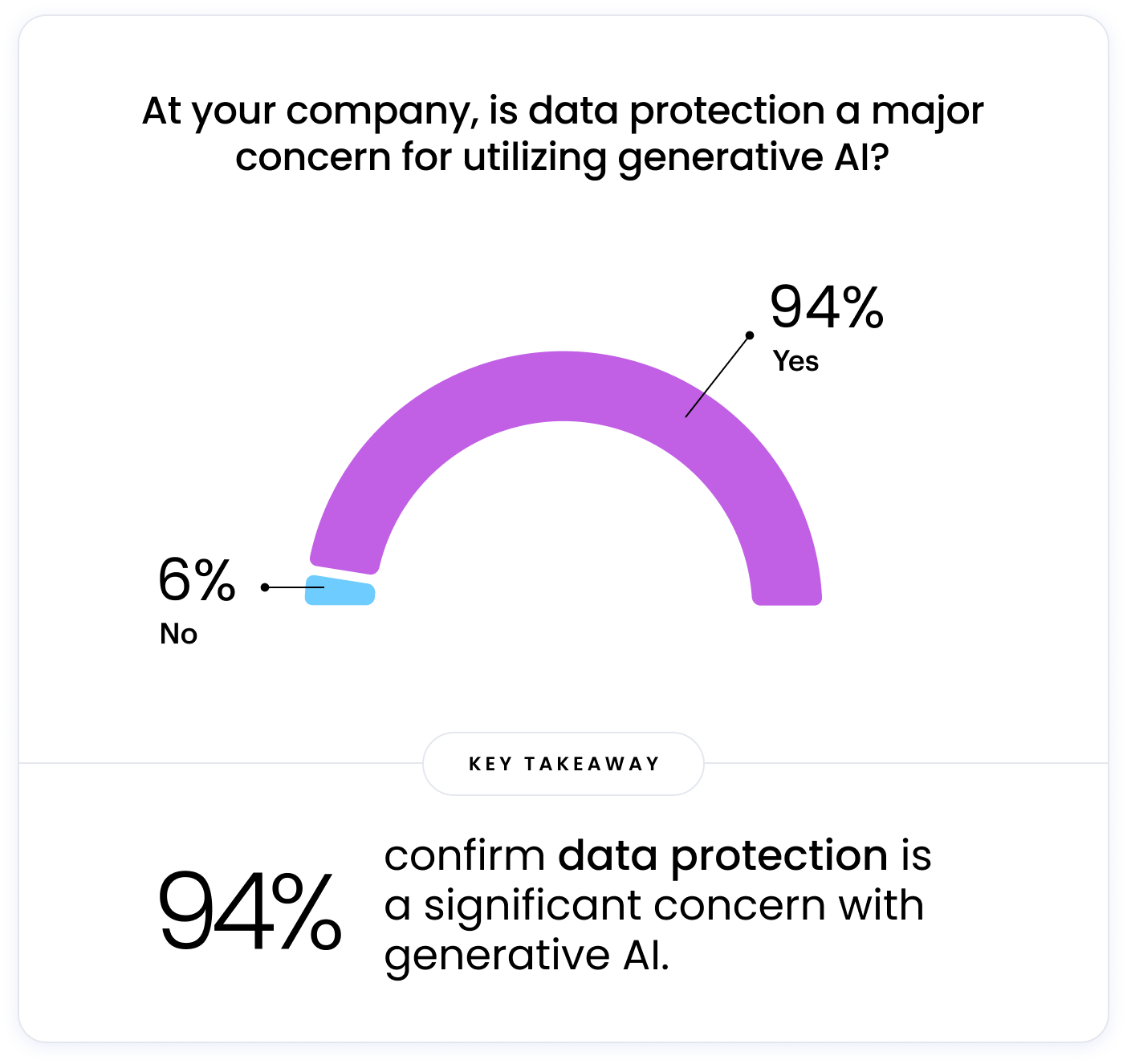
Among the key security controls needed for generative AI are data control and access. This means having strict measures in place to regulate who has access to the data being used by the AI system. With the potential for sensitive data to be exposed, it’s essential for companies to have full control over their data and limit access based on role or application, purpose, and duration.
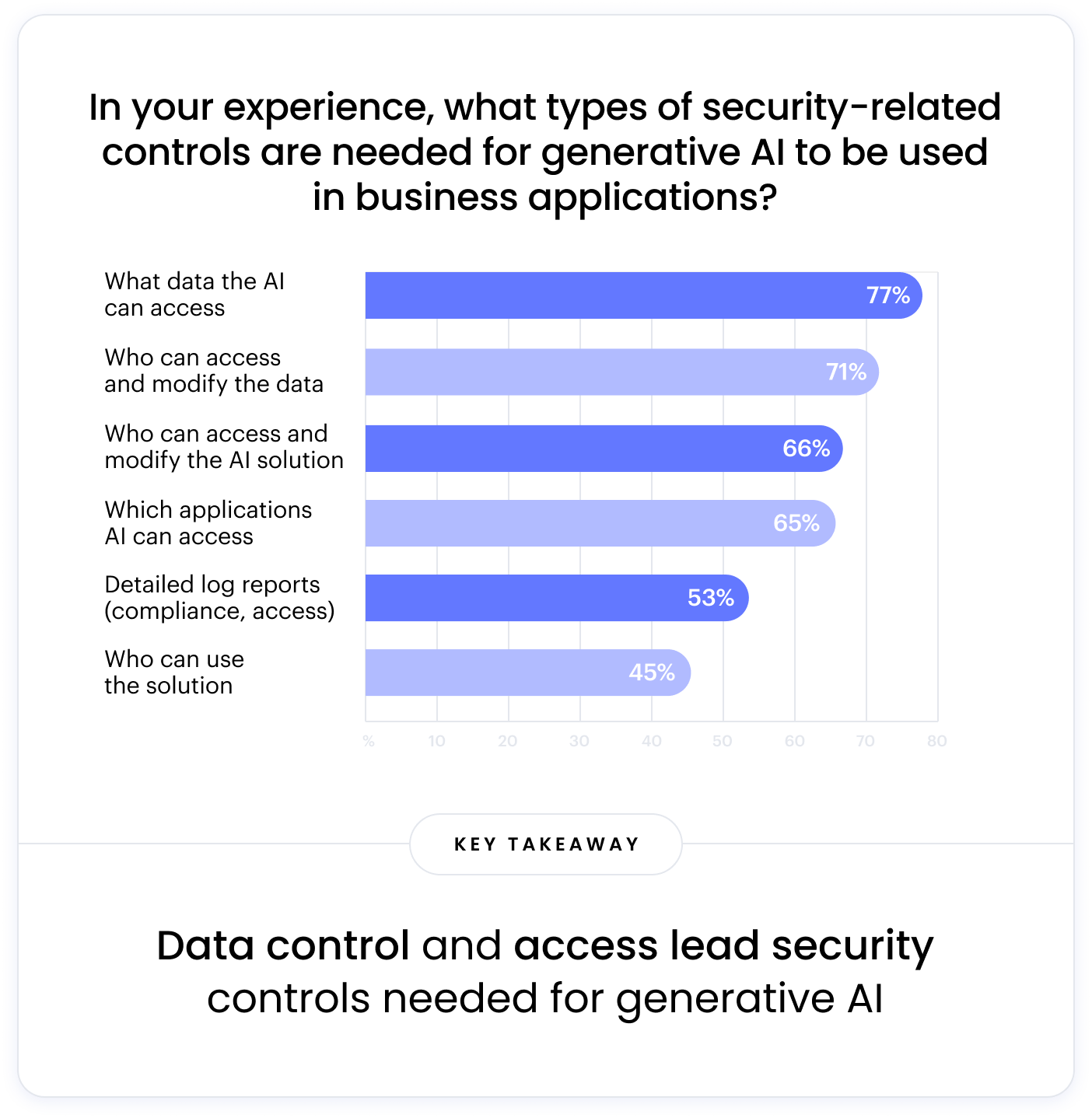
These concerns over security and data management have led many companies to opt for in-house or private solutions for their generative AI needs. In fact, 78% of businesses surveyed are either already using or planning to use a private generative AI solution (one built in-house). By using such a solution, companies believe they’ll have more control over their data and can implement their own security measures, giving them peace of mind when it comes to protecting their valuable information.
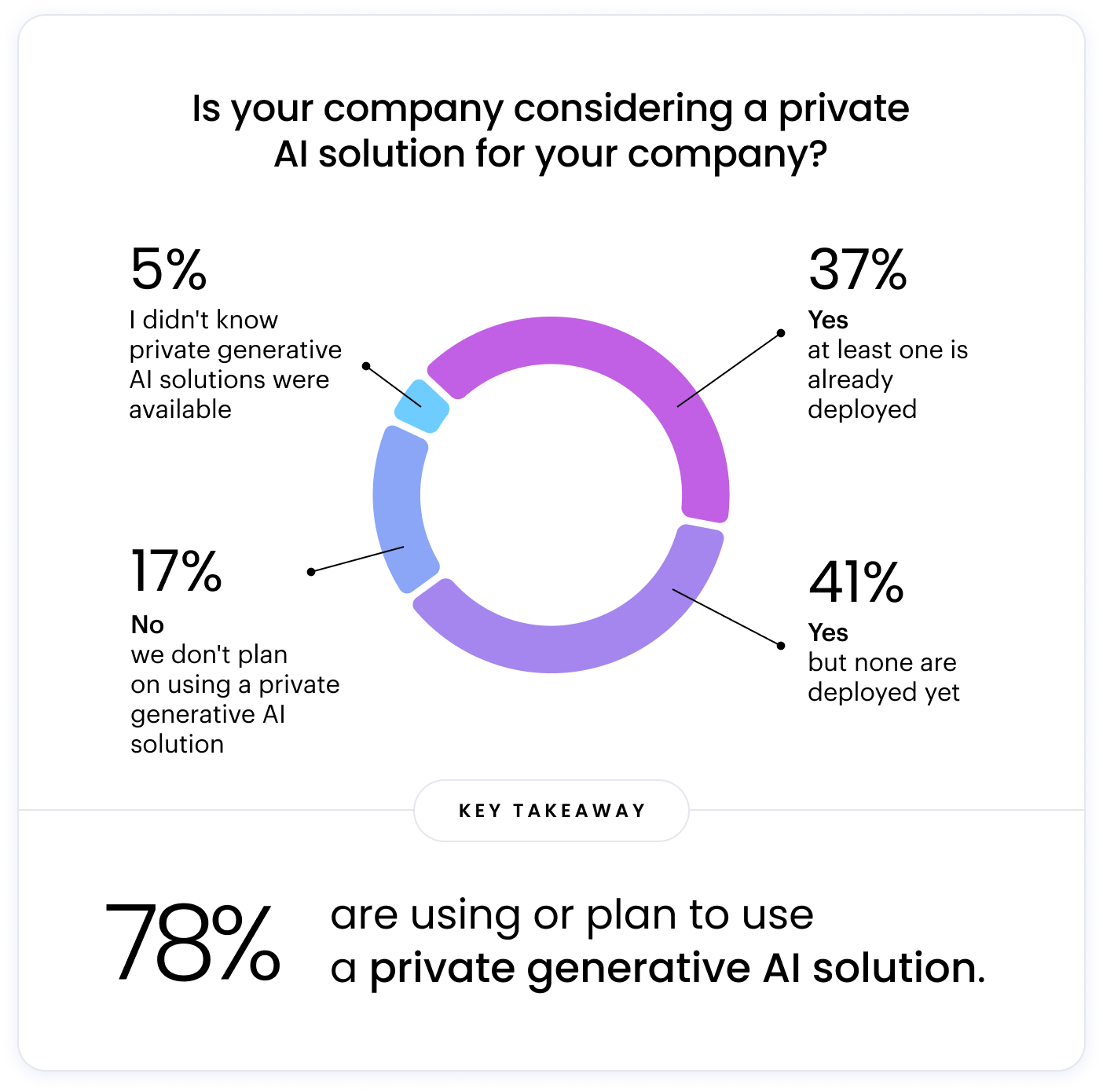
Accuracy and deployment: In-house generative AI solutions fail to deliver on enterprise expectations
Building an in-house software (private) solution may seem better, cheaper, and more secure. But this might not be true for DIY generative AI. With private generative AI, long timelines and errors can delay the benefits a company should realize within weeks. Meanwhile, competitors are using commercial solutions that give them benefits and make their customers happy.
According to our survey, 61% of companies that have implemented in-house generative AI solutions have experienced accuracy issues. This means that the generated outputs aren’t meeting the desired level of quality or aren’t aligned with the intended goals of the project. This is a significant problem as it can lead to wasted time, resources, and ultimately, missed business opportunities.
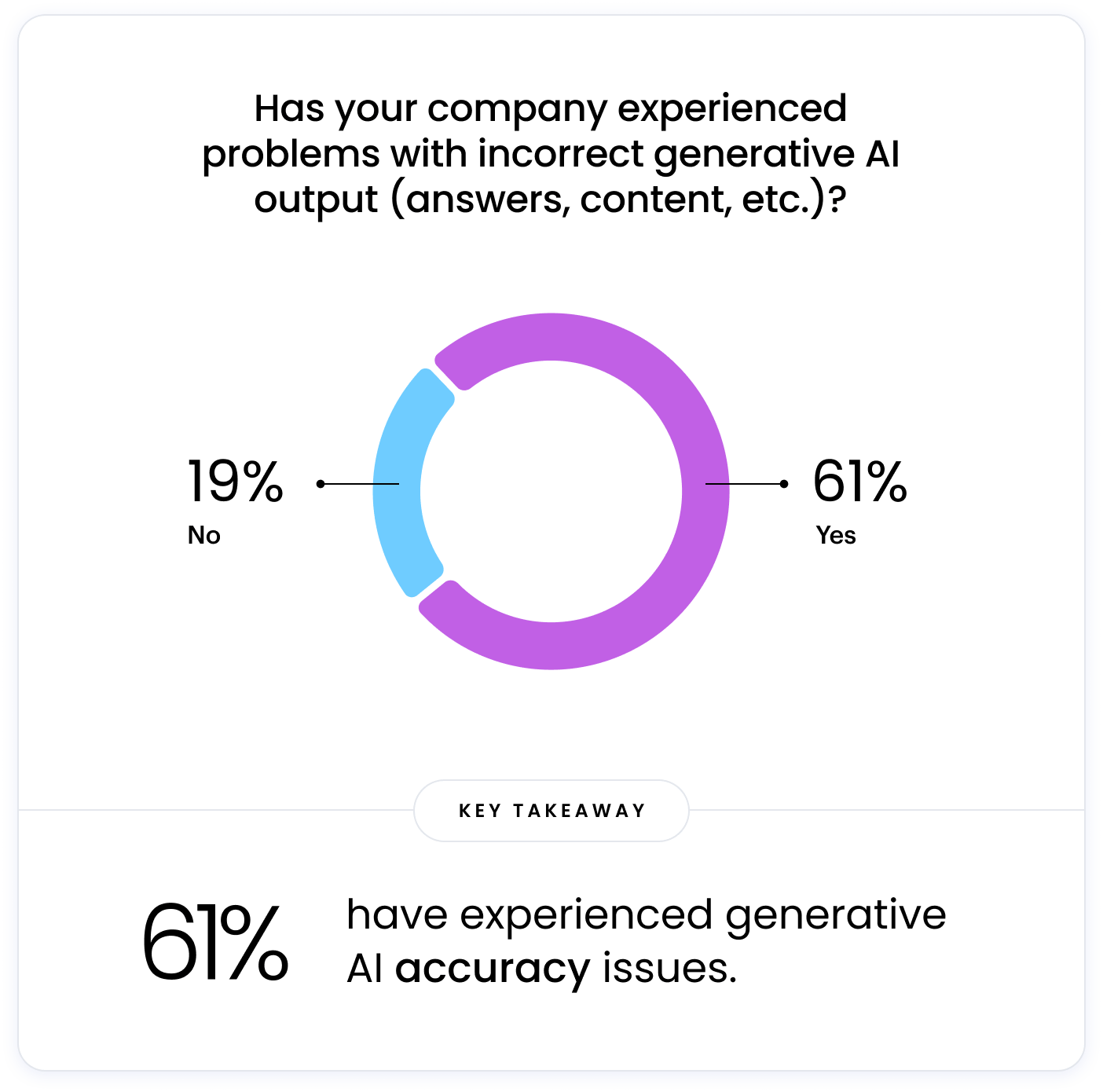
But it’s not just accuracy that’s a concern with in-house generative AI solutions. When asked to rate the overall performance of their projects, only 17% of companies indicated that their in-house generative AI solutions were excellent. This means that most projects are only mediocre or worse, failing to deliver on the promised benefits and potential.
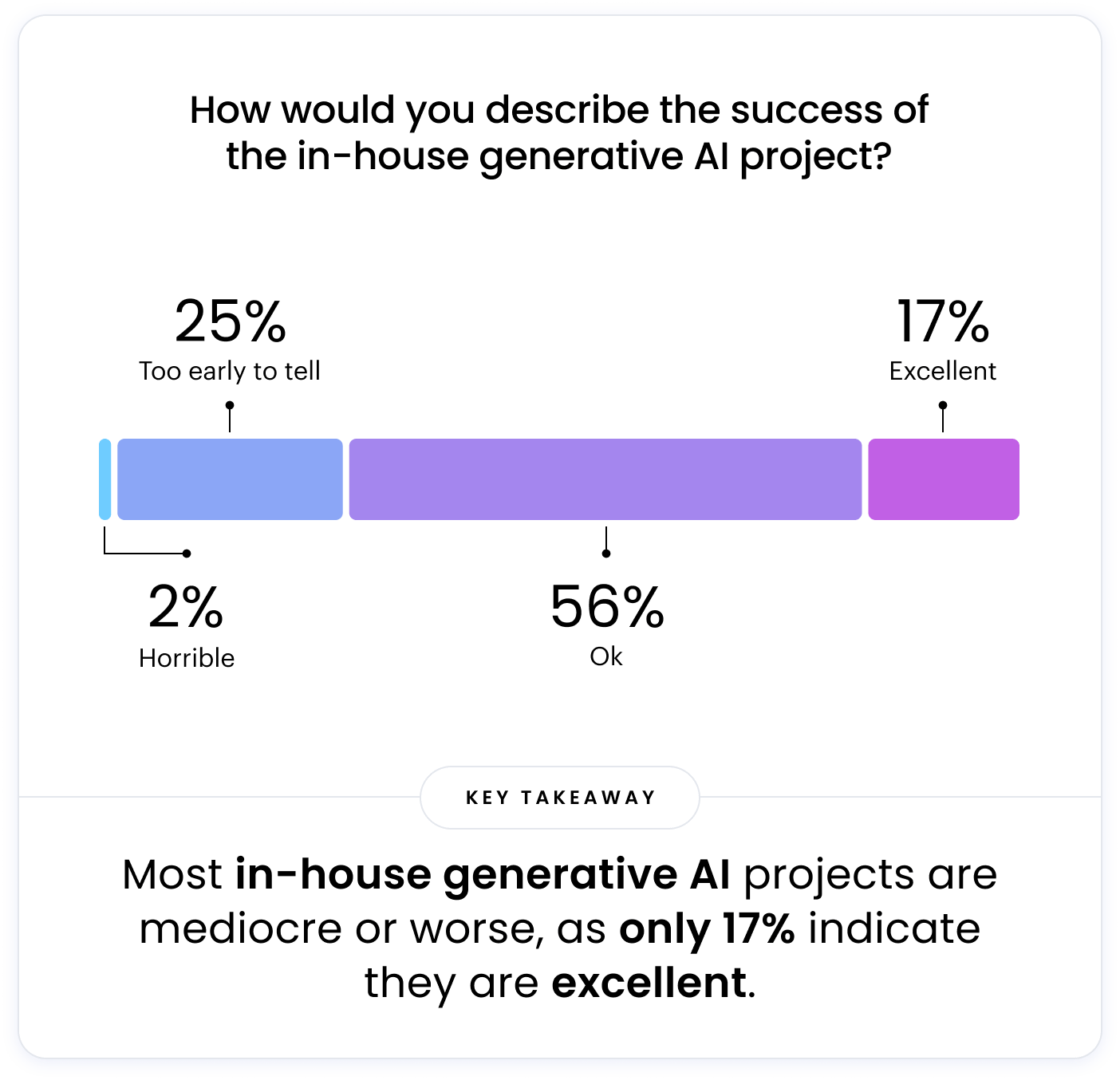
One of the main reasons for the lackluster performance of in-house generative AI solutions is the low confidence levels of companies in building these systems. Only 10% of companies reported having high confidence in building a quality in-house generative AI solution. This lack of confidence can be attributed to the complex and constantly evolving nature of AI technology, which requires a specialized skill set and resources that many companies may not have.
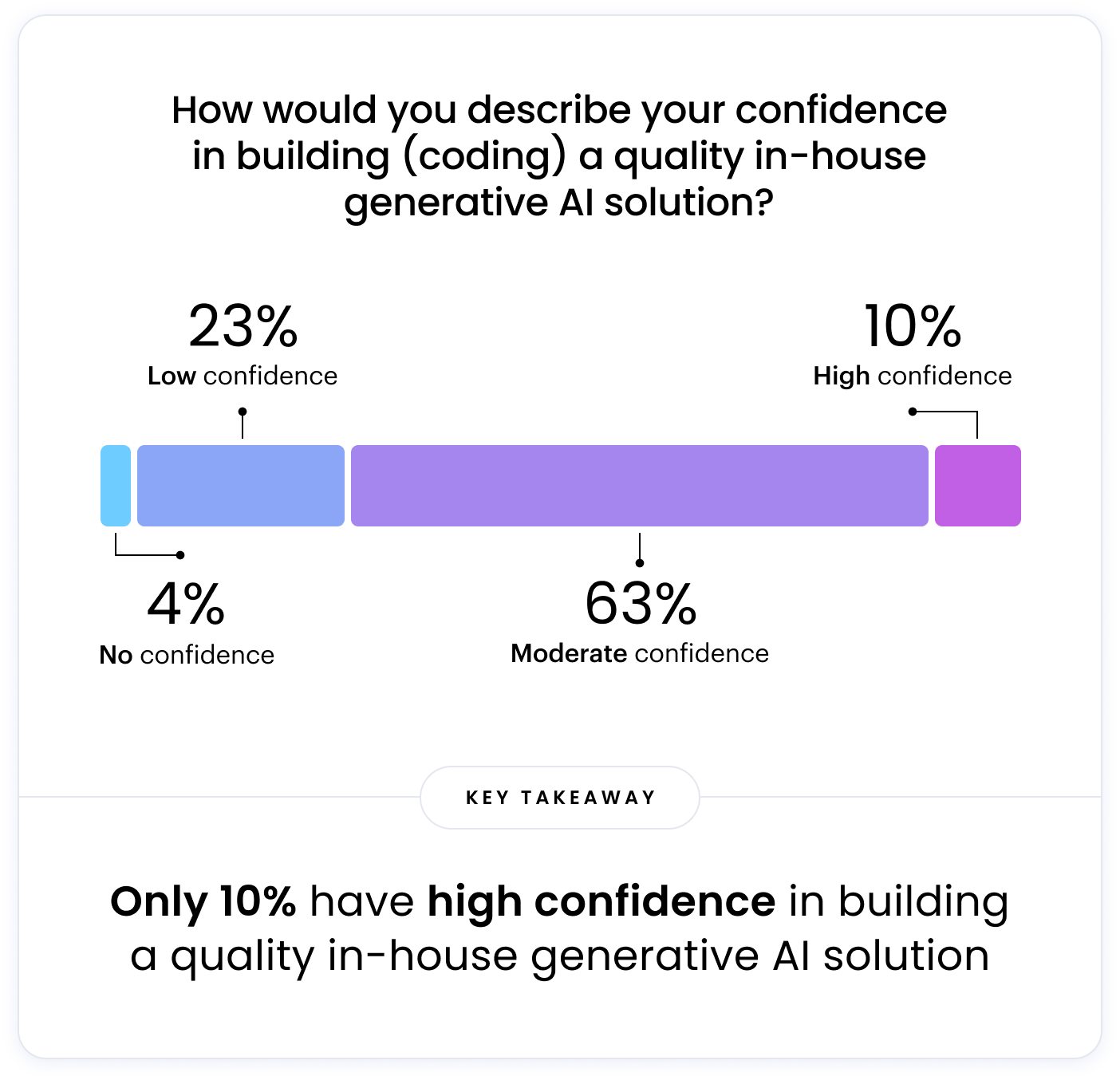
When it comes to selecting commercial generative AI solutions, companies have a different set of criteria. Security and data governance are the top business priorities. This highlights the importance of trust and reliability in third-party vendors, especially when dealing with sensitive data.
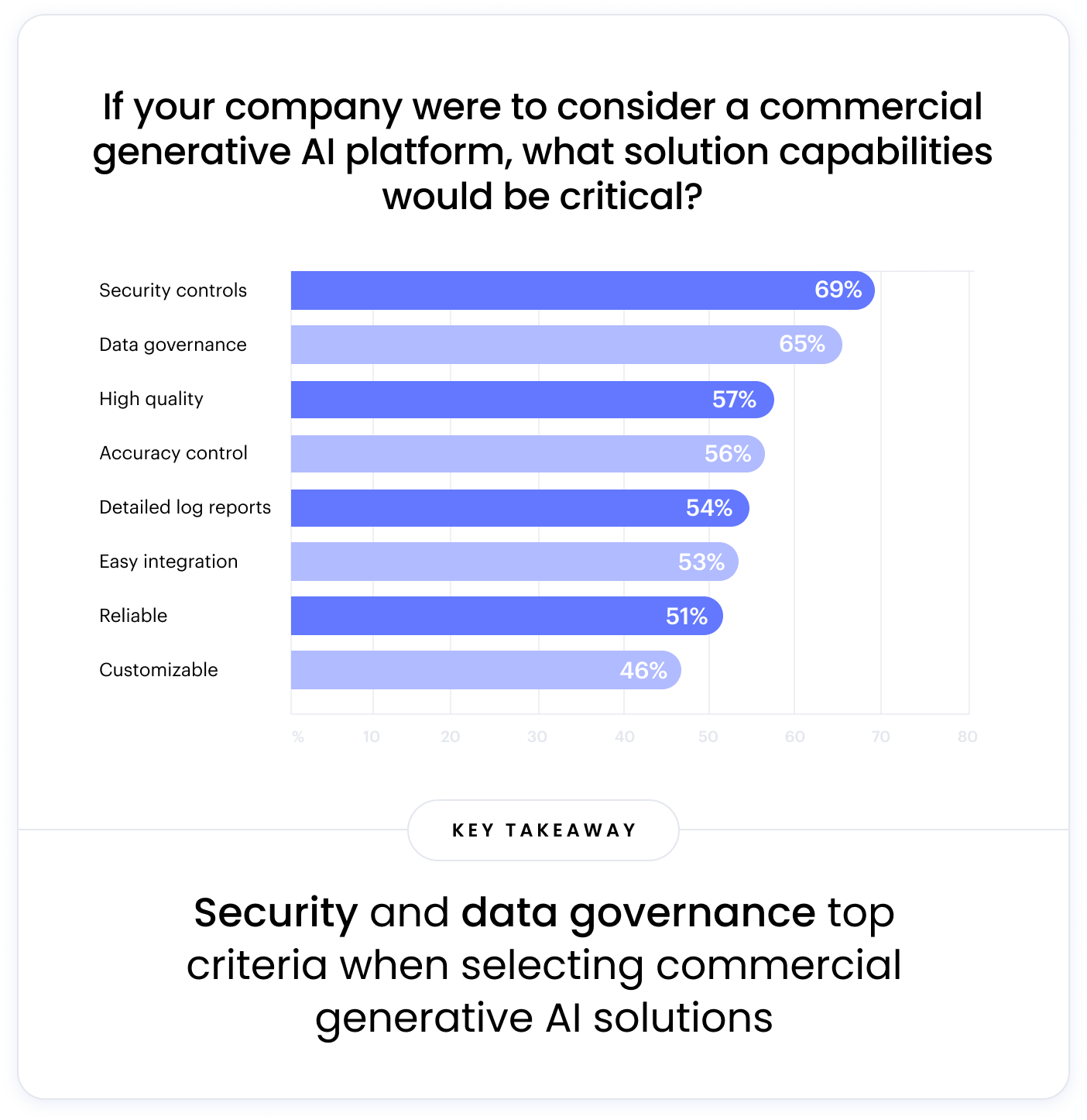
Embracing the transformative power of generative AI in the enterprise
Our survey findings highlight the remarkable adoption and potential of generative AI in enterprise companies. With widespread recognition and trust in its capabilities, businesses are using generative AI to drive innovation, streamline processes, and enhance customer experiences. But challenges related to security and data management have led to a growing preference for private solutions, which contain hidden costs and slow down time to value. It’s crucial for organizations to carefully consider the benefits and limitations of in-house solutions versus commercial offerings to ensure the best outcomes for their enterprise.
“In the fast-paced world of generative AI, the temptation to build custom solutions is strong, driven by the allure of control and customization. However, our survey findings reveal significant hurdles with in-house development, from accuracy problems to delays that undermine agility and competitiveness,” says May Habib, CEO and co-founder of Writer.
“In my daily discussions with corporate executives, I emphasize the critical need to evaluate build versus buy strategies against their generative AI requirements,” continues Habib. “It’s not just about the technology; it’s about how it aligns with their business objectives, streamlines their operations, and safeguards their data. I encourage CEOs, CIOs, and other decision-makers to take advantage of generative AI as a driver for growth, innovation, and improved customer experiences. The right strategy can transform challenges into opportunities. If they’re not already thinking about that, then they’re behind.”
As businesses navigate the evolving landscape of generative AI, it’s essential to stay informed and make strategic decisions. Explore the possibilities of generative AI for your organization, considering the benefits of commercial solutions that offer robust security and data controls. Embrace the transformative power of generative AI to drive innovation, enhance customer experiences, and propel your business into the future.
Build generative AI into any business process with Writer, the secure enterprise platform. Reach out to our team.


